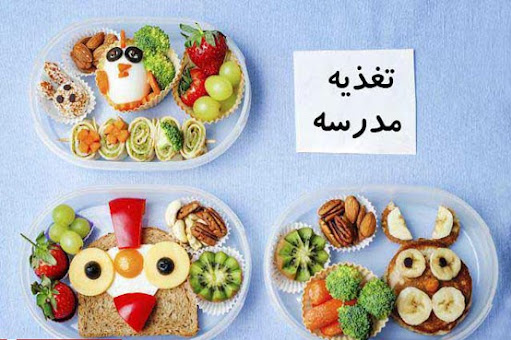Proper corporate snack snacks for students / Adverse effects of skipping breakfast on children’s memory

Life group: One of the constant concerns of parents with the reopening of schools is the issue of children’s nutrition and their tendency to fast food. Despite the coronary conditions, this concern has become more serious. In fact, parents are looking for a nutrition that, while increasing the efficiency of their children’s brain activity, is also in line with health protocols and can be easily consumed in the school environment. In this regard, we conducted an interview with Dr. Fereshteh Karbasian, a nutritionist, which you will read below.
The importance of proper nutrition for children in school
“Maintaining a balanced diet and regular exercise is important for everyone, especially school-age children (6 to 12 years old),” says Dr. Fereshteh Karbasian. These children are required to eat a variety of foods from each food group to ensure optimal intake of all vitamins and minerals. At the same time, they may face new challenges in their food choices and habits. Decisions about what to eat are made in part by school officials, family, the influence of friends at school, and the media, especially television.
Inadequate nutrition not only endangers the quality of life of children but also undermines their potential to benefit from education. Achieving optimal nutrition includes eating three meals a day and two nutritious snacks, as well as limiting the intake of high-sugar and high-fat foods. Consuming large amounts of fruits, vegetables, lean meats and low-fat dairy products, including three servings of milk, cheese or yogurt to meet your calcium needs, can help prevent many nutritional problems. These problems include overweight, poor bone growth and diabetes.
Proper nutrition for school-age children also ensures full growth and development and provides a stepping stone to a healthy life in the future.

The effect of students’ nutrition on their mental performance in school
“Children grow significantly at school age, but at a slower rate, while they are generally very physically active,” says the nutritionist. As a result, their nutritional needs are high and vital. In addition, genetic background, gender, body size and shape are all important factors in determining nutrient requirements.
Recent research on the effects of zinc, iodine, iron and folate deficiency on school-age cognitive development has shown that nutrition affects children’s thinking ability. For example, iron and zinc deficiency is associated with neuropsychiatric dysfunction, growth retardation, decreased immunity, and increased vulnerability to infectious diseases.
Adverse effects of skipping breakfast on children’s memory
“Eat breakfast every day to help keep the class focused,” Karbasian told students about the importance of eating breakfast. A good breakfast should be able to provide one third of the total energy needed daily. A typical breakfast consists of whole grains (eg, rice, bread and barley), protein-rich foods such as eggs, a glass of milk and fruits rich in vitamin C such as oranges. Studies have shown that fasting children at school has effects It is harmful to their memory and attention. Empirical evidence from research on the effects of breakfast on children’s cognition shows that, especially in younger children, skipping breakfast can have adverse effects on general energy levels and children’s cognition.

A few nutritional tips for students
This nutritionist has important recommendations regarding student snacks and addresses them:
Eat a variety of foods to get enough nutrients.
Balance the food we eat with physical activity.
Choose a diet rich in cereals, vegetables and fruits.
Choose a low-fat diet with low saturated fat and cholesterol.
Our meals include low-calorie, low-fat snacks and desserts.
Buy low-fat or skim milk and diet drinks.
Choose a diet that provides enough calcium and iron to meet your body’s needs.
Choose a diet with moderate sugar and salt. Avoid large amounts of sweet desserts, soft drinks, fruit-flavored drinks, sugar-coated cereals, chips or candy.
Crohn’s Day nutrition for students
Dr. Fereshteh Karbasian advises the parents of students regarding the reopening of schools in Corona:
Be sure to prepare food for our children at home and put it in hanging containers.
Advise our children not to share their nutrition with their classmates due to coronary conditions.
Put a fork in the children’s bag so that they can eat the fruit or any snack they have with a fork and do not have to use their hands.
Advise our children to eat in an open environment, keeping their distance from others.
Put a special water bottle for them and emphasize that they use their own bottle.
Each student should have a disinfectant solution and be sure to disinfect their hands before eating.
End of message /
You can edit this post
Suggest this for the front page
.

